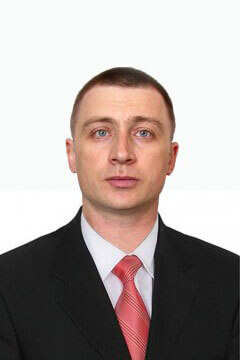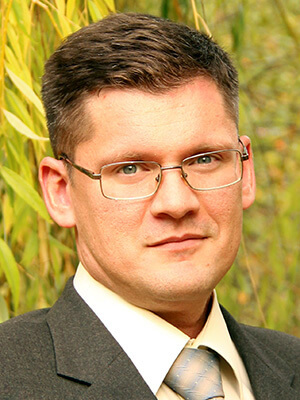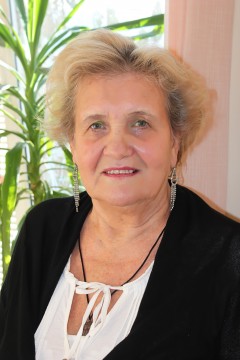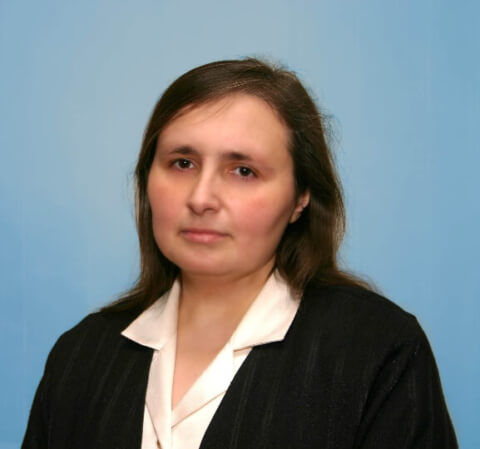Cybersecurity Management program — qualification level "Bachelor"
Students study the mechanisms of information and cybersecurity management in accordance with the international information security standards of the ISO/IEC 27 series; mechanisms for ensuring information security of infocommunication and computer networks, risk management and audit of information and cybersecurity systems, mechanisms for investigating incidents, mechanisms for ensuring web security, security of banking systems and e-commerce systems, etc.
Description of the educational program of Cybersecurity Management:
Kharkiv National University of Radio Electronics participates in international programs to develop the content of education within the framework of the Cybersecurity Management educational program.
From 2014 to 2018, the Popovskyi Department of Infocommunication Engineering was a project participant and coordinator of the Ukrainian side of the ENGENSEC consortium of the European Tempus program - training of next generation cybersecurity specialists. As part of this program, 7 basic courses were developed and taught to students:
- Digital Forensics;
- Web security;
- Malware Analysis;
- Ethical hacking;
- Wireless network security;
- Security of cloud technologies;
- Secure Software Development.
From 2021 to 2024, the University participated in the USAID (United States Agency for International Development) Project “Cybersecurity of Ukraine's Critical Infrastructure”. The Popovskyi Department of Infocommunication Engineering was the lead department from NURE in this project, and 24 teachers of the department were trained in the courses:
- Incident Response;
- Digital forensics;
- Security of cyber-physical systems;
- IoT Security and Privacy;
- Computer and network security basics;
- Audit and risk management;
- Web application security;
- Malware Analysis.
Since 2024, the department has been implementing the international project Security Education Center for Unified Resilience & Effective Communications – Erasmus Secure. The project brings together scientists and educators from Portugal, Lithuania, Spain, Ukraine and Georgia. It aims to develop two similar R&EHubs – the first in Ukraine and the second in Georgia, taking into account and using the best practices of EU universities as an example. R&EHubs will include three innovative laboratories in the field of 5G cybersecurity and beyond.
In recent years, the staff of the Popovsky Department of Infocommunication Engineering has won the following grants:
- Grant of the European Union ERASMUS+ Jean Monnet project “Integration of EU Cybersecurity Frameworks and Policies in Ukraine” (project duration 2020 - 2023).
- European Union ERASMUS+ Jean Monnet grant “European experience for enhancing the resilience of critical facilities in Ukraine” (project start date 2023).
- European Union ERASMUS+ Jean Monnet grant “Integration of the EU's Future-proof Cybersecurity Ecosystem in Ukraine” (project start 2024);
- COST Action CA22104 - Behavioral Next Generation in Wireless Networks for Cyber Security (together with universities of Ukraine, Georgia, Lithuania, Spain and Portugal, dedicated to cybersecurity in new wireless communications, project start in 2023);
- Project from the National Research Foundation of Ukraine “Analysis, Research, Development and Implementation of Modern Information Security Technologies for Global Monitoring of Ukraine's Cyberspace in Crisis and Emergency Situations” (together with Ukrainian universities, project duration 2020-2021); 6.
- CRDF Global project in Ukraine: “Ukraine's Cybersecurity Awareness: Support to a series of trainings on building cyber defense and raising awareness in Ukraine” (project duration 2018-2021).
Since 2017, an agreement on student exchange under the double degree program in the Master's degree in Cybersecurity has been in effect with the Blekinge Institute of Technology (BTH), Karlskrona, Sweden.
Skills and competencies that will have a bachelor's degree in the educational program of Cybersecurity Management:
- Knowledge of programming languages: Java, C++, C#, Python;
- Creation, implementation, monitoring and improvement of information security management systems of the enterprise (institution);
- Conducting audits of enterprises (institutions) on information and cybersecurity;
- Development of software to detect malware and cyber attacks;
- Development and use of software and hardware cyber defense systems;
- Conducting forensic examination of traces of cyber attacks in cyberspace;
- Administration of secure computer and information and communication networks;
- Monitoring of critical parameters of information systems;
- Responding to information security incidents;
- Assessment of information security risks.
A graduate of the educational program of Cybersecurity Management can work:
- Specialist in the development of secure software in C / C ++ / C # / JAVA / Python;
- Information technology auditor (cybersecurity);
- Auditor of information security management systems;
- Specialist in the assessment of information security measures (cybersecurity);
- Specialist in the field of information security;
- Security specialist (information and communication technologies);
- Instructor-methodologist in information security and cybersecurity;
- Law enforcement officer in cybersecurity.
Training and laboratory base:
The V.V. Popovskyi Department of Infocommunication Engineering has modern educational and research laboratories where students can acquire practical skills and abilities in cybersecurity:
Cybersecurity & cloud laboratory
Routing & switching laboratory
Network security & resilience laboratory
Radio monitoring, technical protection of information and labor safety laboratory
In 2018, a cyber training ground for the study of cloud security was put into operation, the deployment of which at the department was funded by the European Union under the European Tempus program - training of next generation cybersecurity specialists. On the basis of the cyber training ground, the department annually organizes CTF (Capture the Flag) cybersecurity competitions among students of NURE and various universities of Ukraine.
The educational program “Cybersecurity Management” is a systematic approach to training highly qualified specialists in the field of cybersecurity. Enroll in this educational program and join the ranks of Ukraine's cyber defenders.
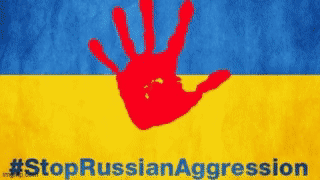
 Українська
Українська
